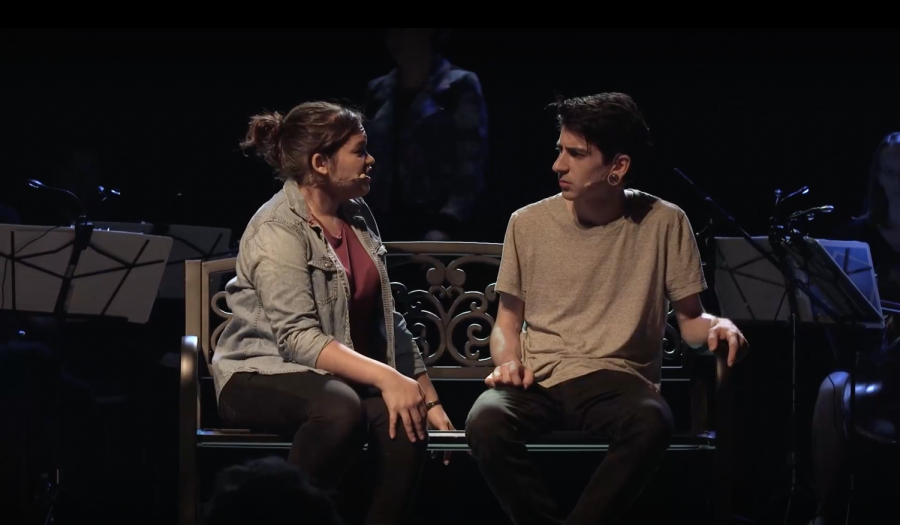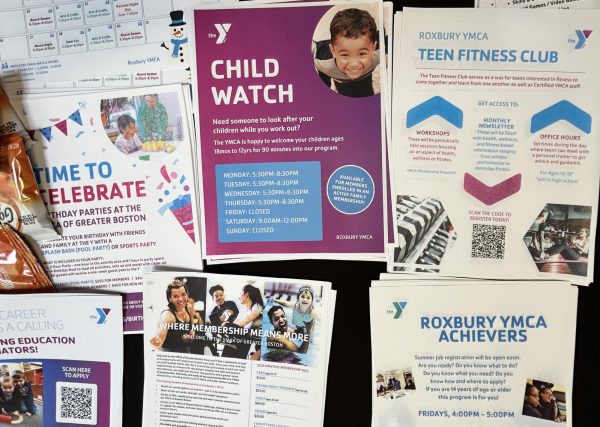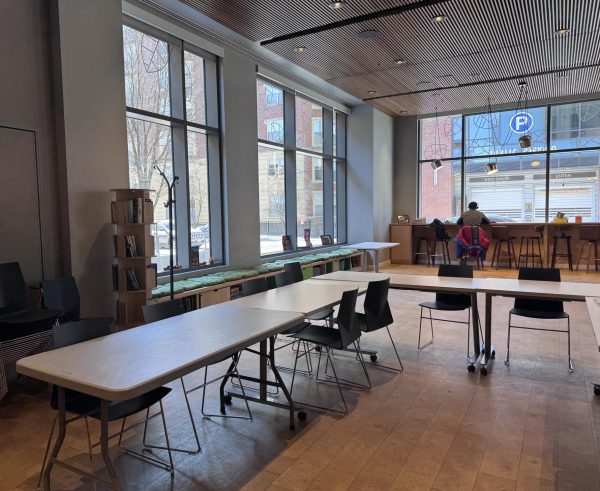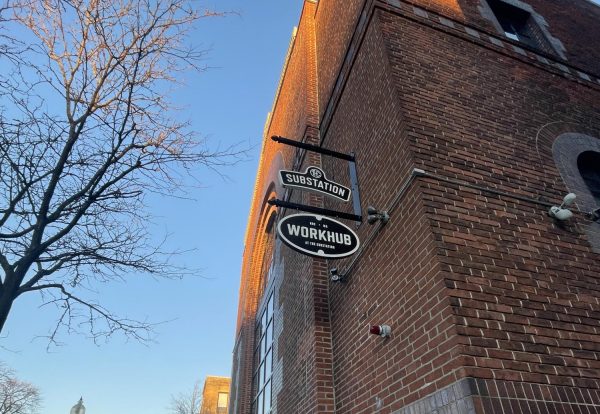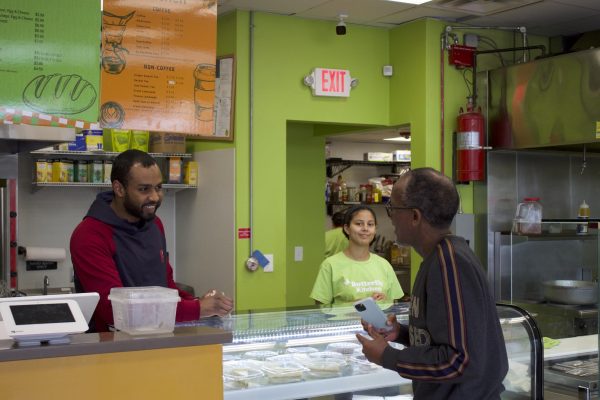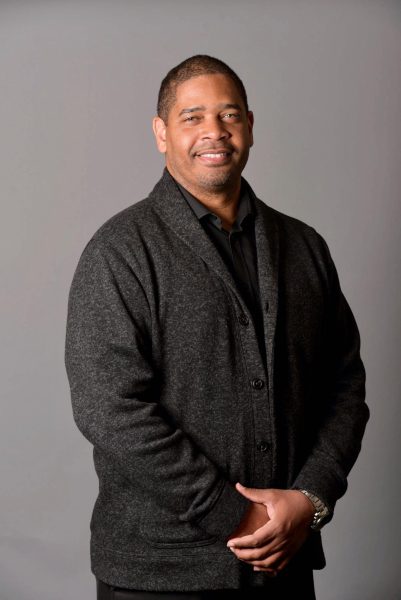For many people with psychosocial disabilities, music is a refuge, not a barrier
“What I love about music is that its saved my life many times. It’s been a source of solace and refuge and joy and celebration and creativity,”
Photo: Riana Buchman
Moss and a colleague perform live at Berklee College of Music.
As psychosocial disabilities are starting to gain more recognition, some musicians find that their art can be a useful tool for healing.
Bipolar disorder, anxiety, and depression are all examples of psychosocial disabilities. Though these disabilities cannot be seen, they can still interfere with a person’s day-to-day activities and even require accommodations.
“For me, I feel like it’s something that screws with your head very much, that makes you think things that are not always true, can really damper your everyday life, something that is really debilitating. It’s definitely something that’s invisible, which I talk about a lot, and it’s hard,” says Claire Joy Moss. Moss holds many titles, among them musician, educator, and communications manager.
Coming to terms with her disability really helped her understand it, she says. Moss also believes that being a musician comes with the advantages of helping with their mental health.
Jon Cohan has been practicing in Massachusetts in the mental health and substance abuse fields for 15 years. He is also a drummer and a survivor of substance abuse.
“What I love about music is, first of all, it’s saved my life many times. It’s rescued me. It’s been the source of solace and refuge and joy and celebration and creativity,” he says. “And it’s the gift that keeps giving to me.”

